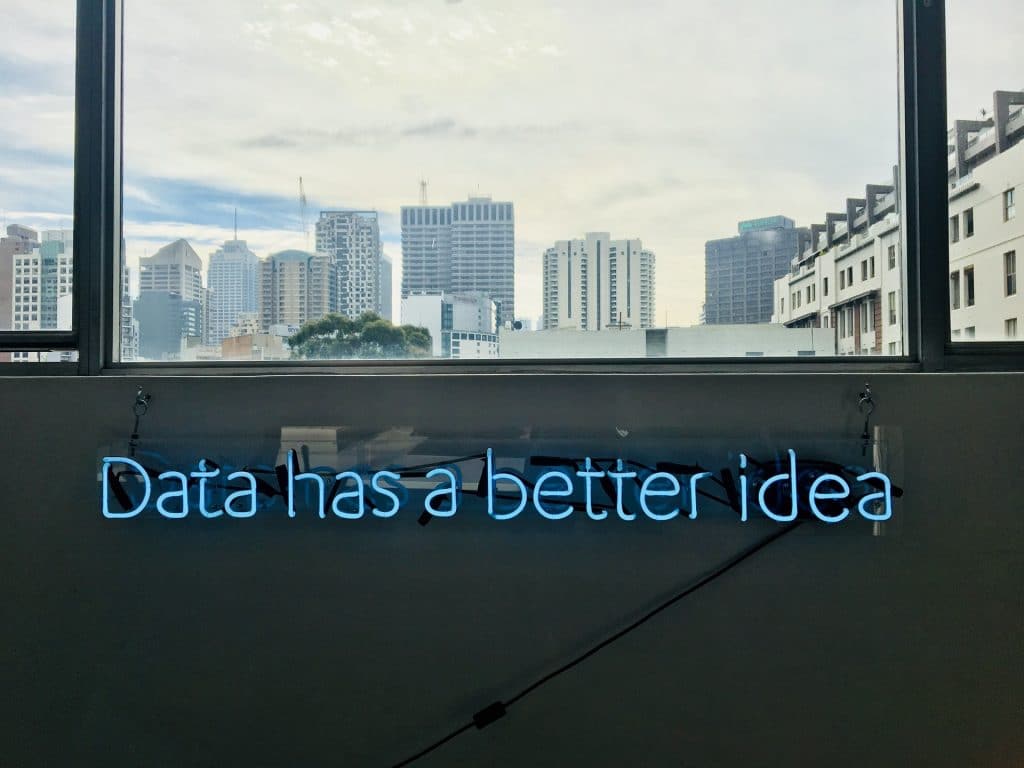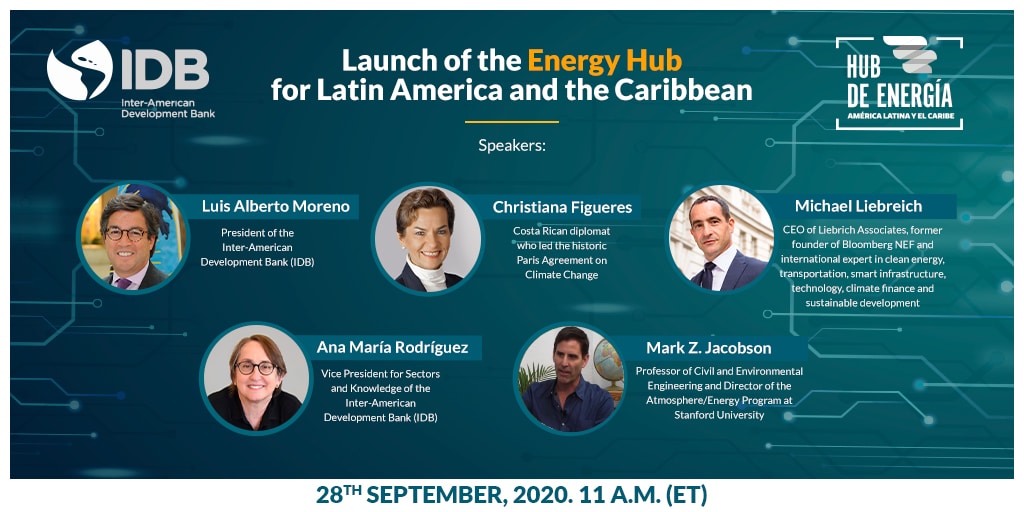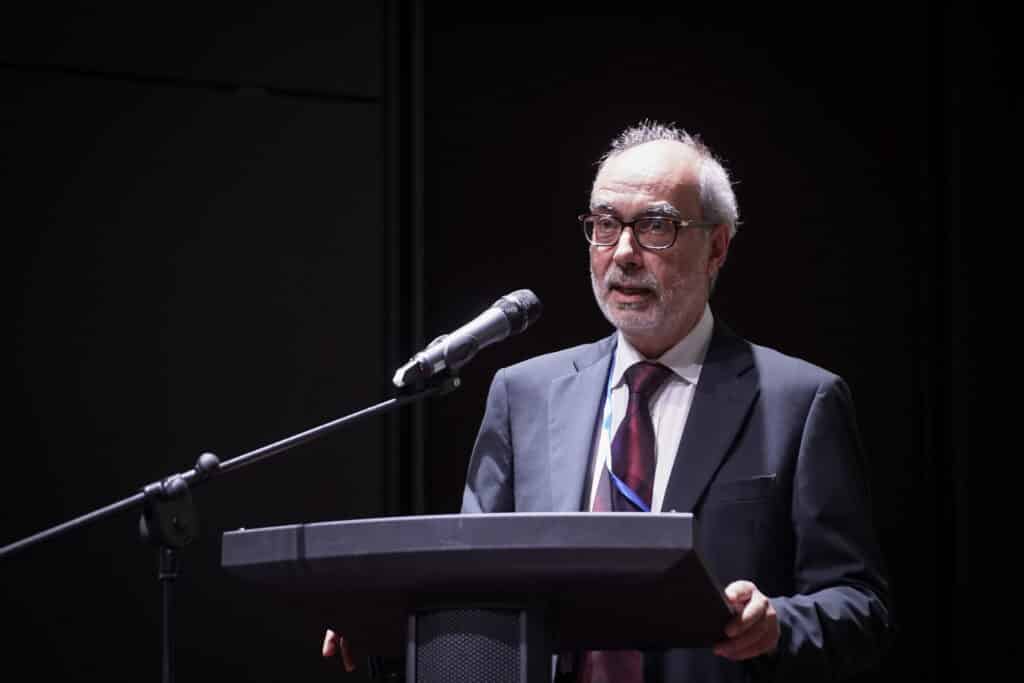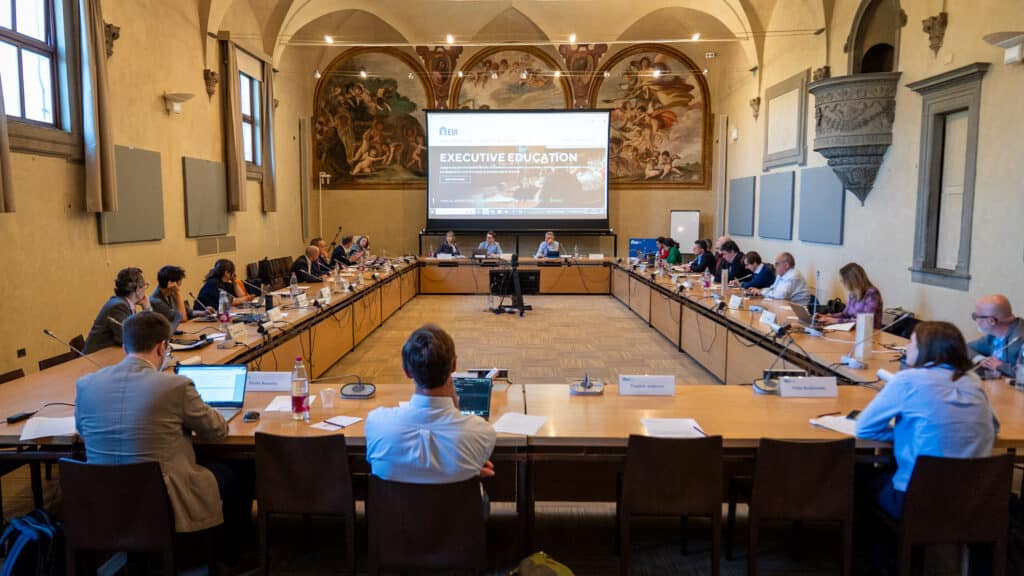Beyond the data: The LAC Energy Hub
The Inter-American Development Bank unleashes the LAC Energy Hub, a reference point for information and data, and the generation of knowledge about the energy sector in Latin America and the Caribbean.
In this article Michelle Hallack, Virginia Snyder and Luis Carlos Perez dive into the details of the Inter-American Development Bank’s new LAC Energy HUB. Highlighting the revolutionary impact of data in the energy sector, they shed light on the details behind the HUB project and the importance and usefulness of such a tool.
Beyond the data
1 0 0 0 are the binary codes to represent the letter: H. And so, each of these letters that you are seeing now are encoded by a binary code. But in this blog, we are not going to talk about binary codes, but what they represent: data.
Nowadays, data can be generated everywhere, but their value depends on the process and analysis. Data, when processed and interpreted, are important for decision making at different levels: policymakers, investors, advocacy, regulators, non-profit organizations, and citizens. They are particularly crucial for an increasingly digitized energy sector: the use of energy data can improve the energy sector but also be a huge source of information about users (citizen, commercial users, and industry). The energy data can transform the industry organization and change the services while improving affordability, for instance, demand management has a huge potential to increase electricity system efficiency and increase the affordability of the services. But also, electricity information (which is potentially in the speed light) can help to track economic activities or how household changed their behaviour during the Pandemic crises.
Data will revolutionize the sector. To be part of this revolution, LAC countries and energy stakeholders should be able to: (1) evaluate the challenges that hinder the growth of their industry; (2) learn about the evolving technologies that represent an opportunity of solutions for the region; (3) absorb the changes quickly to leapfrog and avoid lock-in situations; (4) adapt technological changes to national needs and specificities of each country; and (5) follow up the changes undertaken to transform the process in cumulative knowledge.
Adaptation of innovative technologies needs to be credible, efficient, and quick to drive investments. Increasing the amount, the availability, and the transparency of updated and integrated information (based on robust methodologies) and knowledge in priority areas of the region are the sine qua non-condition for LAC governments to move forward and benefit from the new opportunities that innovation will unlock.
Making data accessible to everyone is an important mechanism to democratize knowledge and, why not, the energy sector.
One-stop-shop for LAC Energy Data
Having access to different sources of data is essential and it must be promoted, but it is not enough. The user needs to be able to find and use it on a daily bases. It is essential to find a way to gather, organize, and analyze them to provide practical benefits and encourage the creation of a more significant number of evidence and data. In Latin America and the Caribbean, even if we are just at the beginning of the data era in the energy sector, there is already currently a lot of energy information. The public information, is, however, dispersed, incomplete, outdated, and in some cases, it is difficult to access or to interpret. This makes it complicated to use it to improve the dialogue and to formulate actions for innovation, sustainability, effective decision-making and ultimately the improvement of people’s quality of life.
For this reason, the IDB undertook the task of creating a digital space that concentrates data and relevant information from the sector. All data is public and open; the data is not modified or hierarchical.
The mission of the IDB LAC Energy Hub is to concentrate information and promote the use and generation of data on energy in Latin America and the Caribbean in a single place, making it accessible, interactive, intuitive, comparable and useful for its users. Reduce information gaps and promote knowledge creation for innovation, energy efficiency and better decision-making in the sector.
The Energy HUB aims to be the meeting point of reference for information and data and knowledge generation about the energy sector in Latin America and the Caribbean.
The IDB has expressed a clear set of values which the Energy Hub aims to uphold. Among them: collaboration, knowledge, innovation, the democratization of information, and a sustainable transformation. To achieve those values, LAC Energy Hub’s main goals are:
- To integrate energy information from Latin America and the Caribbean in one place, so that users can obtain data easily, quickly, intuitively, interactively, and transparently.
- To promote and democratize access to data and information on energy, which will accelerate the generation of knowledge, serving as support to boost innovation, create new business models, generate effective public policies, detect trends, save costs and time, responding to current problems, and, ultimately, to contribute to the sustainable energy progress of the region, and improve the quality of life of the people.
- To encourage interaction and dialogue between the actors of the energy sector in the region, so that regional research is shared, promoted, stimulated and facilitated, generating the cross-dissemination of experiences and the discussion of possible solutions to regional energy challenges.
The Energy HUB Launch
The energy launch event on 28th September, 11 am (Eastern Time) with an online event present the project.
During the event, Luis Alberto Moreno (IADB president), Mark Z. Jacobson (professor of civil and environmental engineering at Stanford University), Michael Liebreich (Chairman and CEO of Liebreich Associates), Christiana Figueres (Costa Rican diplomat( and Ana Maria Rodriguez (IADB Vice President) will discuss the importance of the data for the future of the energy in Latin America and the Caribbean. You can register here.







